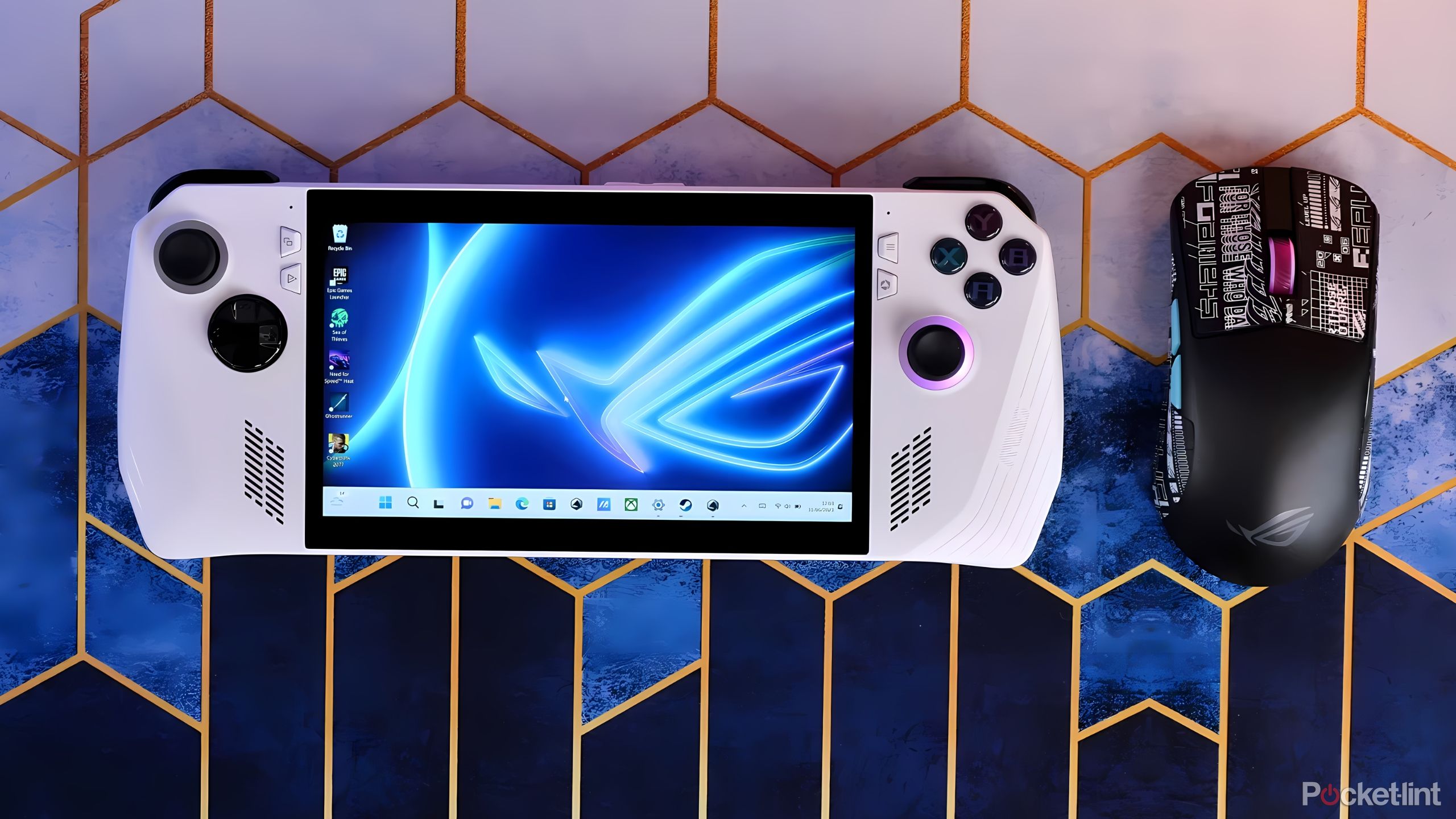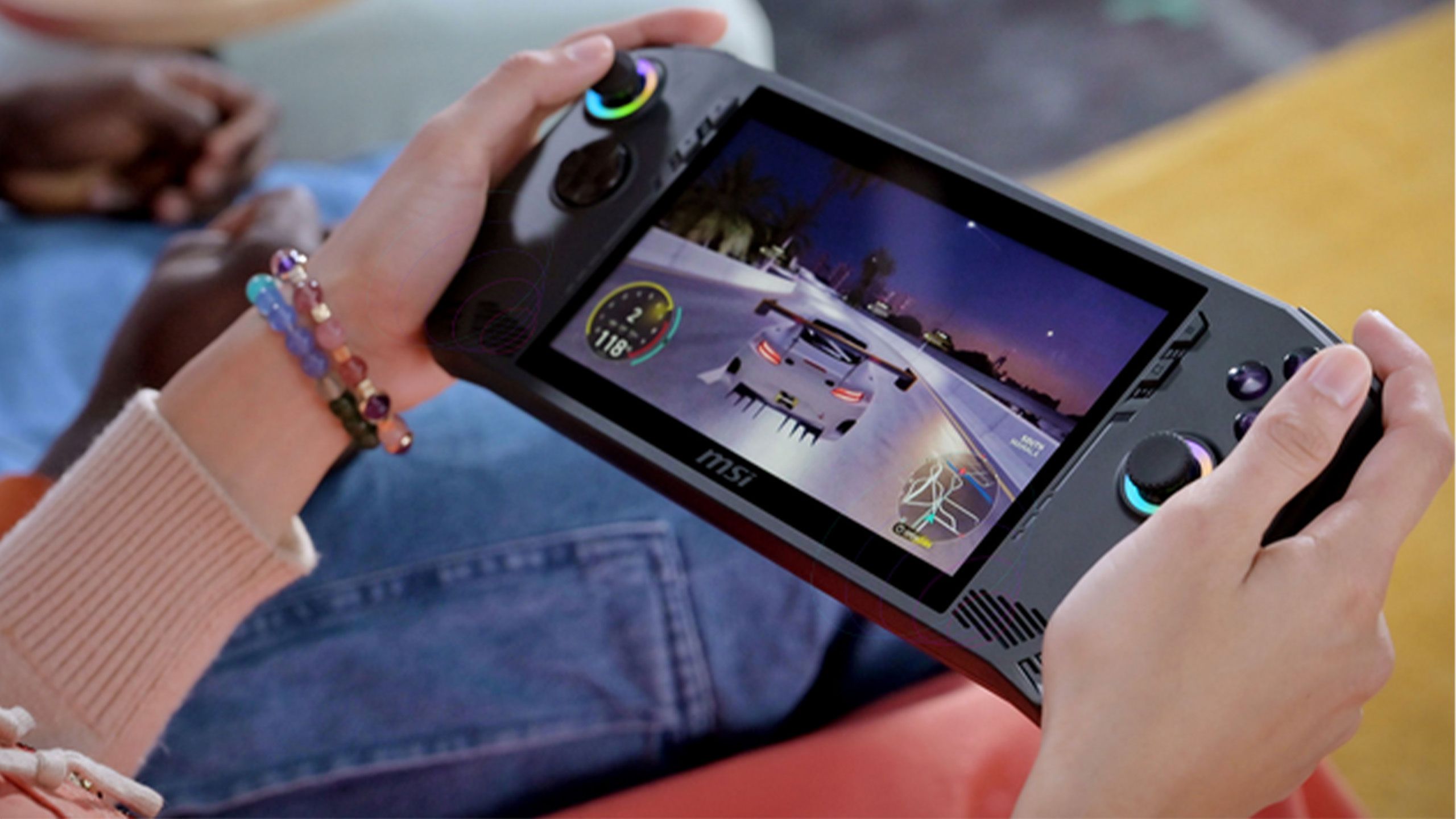Key Takeaways
- Annual updates might give handheld PCs a greater shot at operating the newest video games.
- On the identical time, there is probably not sufficient of a market, and so they might splinter developer help.
- Chipmakers may not be as much as the problem, both.
Even Valve could also be a little bit bowled over by the recognition of the Steam Deck. It is now virtually synonymous with handheld gaming PCs, although that hasn’t stopped rivals from getting into the fray, such because the ASUS ROG Ally and MSI Claw. Due to a burgeoning business, Microsoft is engaged on a local handheld interface for Home windows/Xbox that ought to simplify the expertise.
One concern, although, has been comparatively static specs. Whereas ASUS and Valve have already shipped half-step updates, the corporate has stored the identical underlying processors, and it appears few handheld makers are dedicated to annual efficiency boosts. That is the norm with devoted sport consoles — however not so with desktop and laptop computer PCs, which have a tendency to learn from the newest CPU and GPU developments.
Ought to handheld gaming PCs be up to date yearly? It isn’t the worst concept, however I am leaning in the direction of no.
Associated
Steam Deck OLED: What’s new and should you upgrade?
Ought to you consider shopping for Valve’s new Steam Deck with its new processor and show?
 The case for annual updates
The case for annual updates
Earlier than we get to the counterargument, there’s an apparent cause for wanting a fast turnaround: the video games we play. Builders like to take advantage of new graphics know-how every time potential, seizing the aggressive edge. The result’s that we get video games with more and more demanding textures, polygon counts, and lighting results. A desktop PC that was speedy three or 4 years in the past could already be too sluggish to run the newest 3D video games at most element.
That pressure is much more evident on the Steam Deck. The hand held, which launched in 2022, can battle with titles like Elden Ring and Cyberpunk 2077 — the latter courting again to 2020. Certainly the Deck is normally finest with 2D video games like platformers, or 3D indies that deliberately hold element low.
Units just like the ROG Ally X could also be quicker, however they’re nonetheless no match for a desktop PC geared up with one in all AMD or Nvidia’s newest GPUs. With out annual updates, that efficiency hole is simply going to widen, and there are many video games which are off-limits for handhelds already — there is no manner you are going to play Half-Life: Alyx or Microsoft Flight Simulator on a Steam Deck, irrespective of when you have the mandatory peripherals.
 The case in opposition to annual updates
The case in opposition to annual updates
There are a couple of issues with chasing annual updates, one in all them being developer help, considerably mockingly. Handheld PCs are such a brand new class that (comparatively) few video games are even optimized for them, though they do not at all times should be for them to work. By optimization, I imply efficiency tweaks and supporting gamepad-only controls.
When video games are optimized, it is usually post-launch and particularly for the Steam Deck. If we would like handheld PCs to increase and compete with consoles just like the Nintendo Switch, players ought to be capable of depend on a big suitable sport library — a troublesome ask for builders if the goalposts are shifting yearly. Nonetheless outdated the Change could also be, it at the least provides a identified amount that lets studios deal with gameplay, quite than getting one thing to be playable in any respect.
There is probably not sufficient of a market to help annual updates.
The best concern might be interesting to customers, since there is probably not sufficient of a market to help annual updates. Handhelds are quite a bit cheaper than most desktop and laptop computer gaming PCs, but that additionally places them within the crosshairs of the typical shopper, who — in contrast to hardcore players — could resist the strain to spend $500 or extra each couple of years to remain present. The prospect of frequent, costly upgrades might flip some individuals off of handheld PCs completely. Why not get a Switch 2 as a substitute, one thing prone to final a few years for much less cash? Or keep on with cellphone gaming?
All of this assumes chipmakers can sustain with an annual schedule. Handheld PCs are depending on compact system-on-chip (SoC) processors by AMD and Intel, and it stays to be seen how prepared and in a position these firms are to ship designs like clockwork. Handheld makers could have even stricter timetables than different PC distributors, since they should know the precise dimensions and energy draw of any SoC. There is not sufficient area or battery capability to swap chips at will.
 What are the probabilities of handhelds going annual?
What are the probabilities of handhelds going annual?
If it occurs, it will be in the long run. Whereas MSI is already planning merchandise as far out because the Claw 4, Valve has stated {that a} true Steam Deck 2 will not ship till at the least 2025, if not later. A ROG Ally 2 might take simply as lengthy. We’ve not even talked about Lenovo, which has solely confirmed {that a} second-generation Legion Go is coming ultimately.
I do not suppose we’ll see handhelds shift to an annual cycle except they change into so in style and helpful that they begin to disrupt gross sales of different gadgets, like consoles and laptops. At that time, it’d make sense from a enterprise perspective — somebody wanting a handheld as a do-it-all system might have cutting-edge specs, not simply lust after them. We’ll have to attend and see if the business evolves that manner, or if the enchantment will without end be restricted to diehard players.

Associated
The best games of 2024 … so far
2024 is much from over however we have already had some banger releases. These are the perfect I’ve performed up to now.
Trending Merchandise

Cooler Master MasterBox Q300L Micro-ATX Tower with Magnetic Design Dust Filter, Transparent Acrylic Side Panel, Adjustable I/O & Fully Ventilated Airflow, Black (MCB-Q300L-KANN-S00)

ASUS TUF Gaming GT301 ZAKU II Edition ATX mid-Tower Compact case with Tempered Glass Side Panel, Honeycomb Front Panel, 120mm Aura Addressable RGB Fan, Headphone Hanger,360mm Radiator, Gundam Edition

ASUS TUF Gaming GT501 Mid-Tower Computer Case for up to EATX Motherboards with USB 3.0 Front Panel Cases GT501/GRY/WITH Handle

be quiet! Pure Base 500DX ATX Mid Tower PC case | ARGB | 3 Pre-Installed Pure Wings 2 Fans | Tempered Glass Window | Black | BGW37

ASUS ROG Strix Helios GX601 White Edition RGB Mid-Tower Computer Case for ATX/EATX Motherboards with tempered glass, aluminum frame, GPU braces, 420mm radiator support and Aura Sync

CORSAIR 7000D AIRFLOW Full-Tower ATX PC Case – High-Airflow Front Panel – Spacious Interior – Easy Cable Management – 3x 140mm AirGuide Fans with PWM Repeater Included – Black










